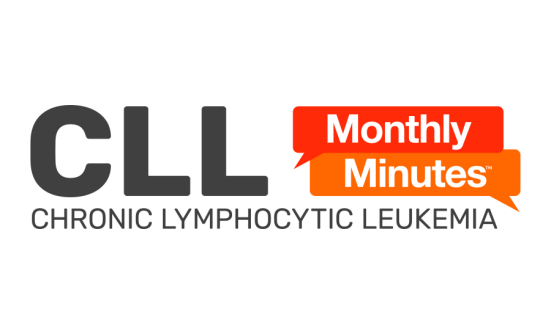Chronic lymphocytic leukemia (CLL) is the most common type of leukemia in adults, with approximately 114,000 new cases diagnosed each year.1,2 For nearly 10 years, the Bruton tyrosine kinase (BTK) inhibitor ibrutinib has been a key part of the standard of care for CLL. Although ibrutinib has been proven to be an effective treatment, it may increase the risk of an irregular heart rhythm known as atrial fibrillation that can increase the risk of stroke, heart failure, and other heart-related complications.1,2
Acalabrutinib is a next-generation BTK inhibitor that was developed with the goal of providing the same efficacy to CLL patients as ibrutinib, without the same side-effect profile.2 To date, acalabrutinib has been approved for the treatment of CLL and small lymphocytic lymphoma in the United States, and for CLL in the European Union and several other countries around the world.1
Although BTK inhibitors have changed the treatment landscape for patients with CLL, certain genetic changes in CLL cells—medically termed 17p deletion and/or 11q deletion—are known to make the cancer more aggressive and difficult to treat. In a recent clinical trial called ELEVATE-RR, investigators compared the efficacy and safety of acalabrutinib with that of ibrutinib in patients with previously treated CLL who also had these high-risk features.1 Notably, this is the first phase 3 clinical trial that has compared these 2 drugs in patients with CLL.
In this trial, 533 patients were randomized to receive either acalabrutinib or ibrutinib, and were allowed to continue treatment until their disease progressed or they experienced an unacceptable toxicity.1 The main objective of the study was to measure how long patients remained alive with no cancer progression with either treatment.1 Other measurements included the number of patients who experienced atrial fibrillation, the number of patients who had severe infections, the number of patients whose CLL changed into an aggressive form of lymphoma (medically called Richter’s transformation), and how long patients survived overall.1
After nearly 3.5 years (40 months) of follow-up, results of this study have shown that previously treated patients with high-risk CLL who received acalabrutinib did not have worse outcomes than those who received ibrutinib and had a significantly lower risk of atrial fibrillation than those in the ibrutinib group.1
Looking at the other measures, no differences were seen between the 2 treatments with regard to the risk of severe infections or of having Richter’s transformation.1 Data from this study suggested that patients receiving acalabrutinib may have a reduced risk of death compared with those receiving ibrutinib, but that result was inconclusive and requires further study.1
Overall, results from ELEVATE-RR indicate that, compared with ibrutinib, acalabrutinib is at least as effective a treatment for patients with previously treated, high-risk CLL, and has a superior safety profile with regard to a common cardiovascular side effect.
References
- AstraZeneca. Calquence met primary efficacy endpoint in head-to-head trial against ibrutinib in chronic lymphocytic leukaemia. News release. Published January 25, 2021. www.astrazeneca.com/content/astraz/media-centre/press-releases/2021/calquence-metprimary-endpoint-against-ibrutinib.html. Accessed February 24, 2021.
- Isaac K, Mato AR. Acalabrutinib and its therapeutic potential in the treatment of chronic lymphocytic leukemia: a short review on emerging data. Cancer Manag Res. 2020;12:2079-2085.















